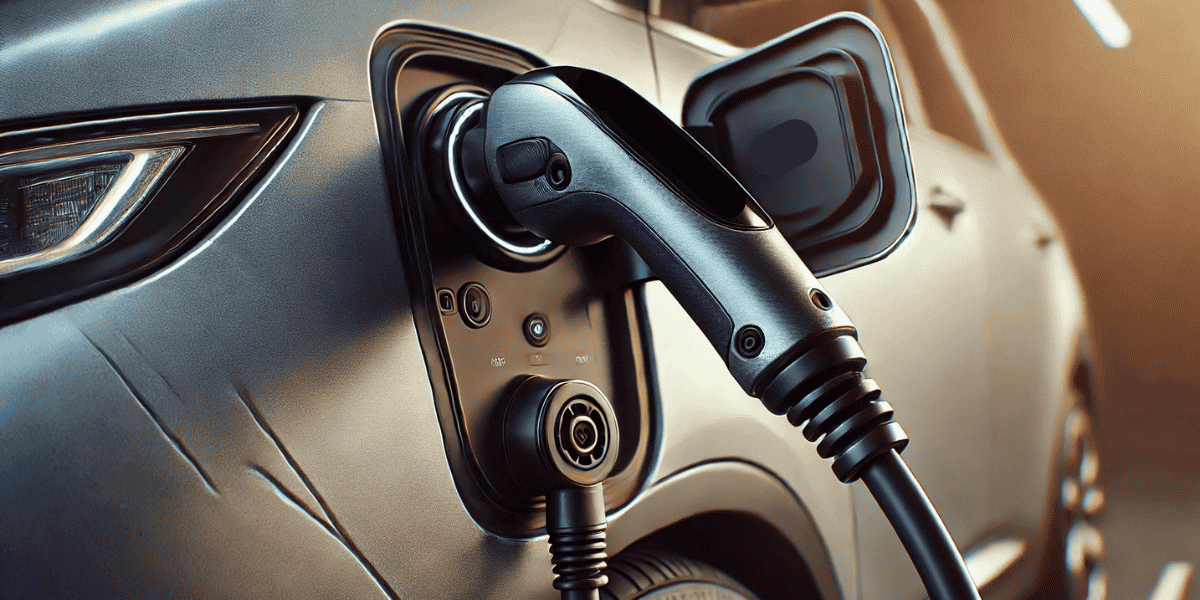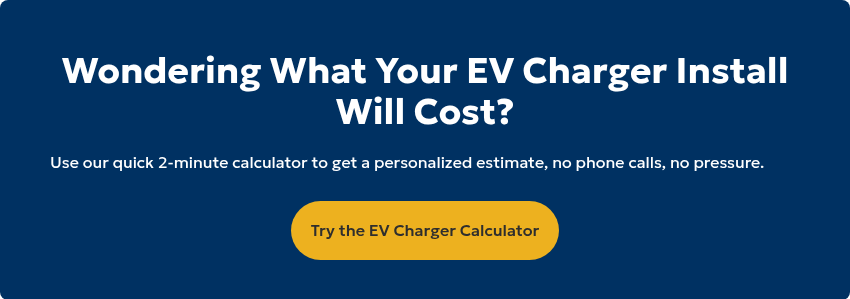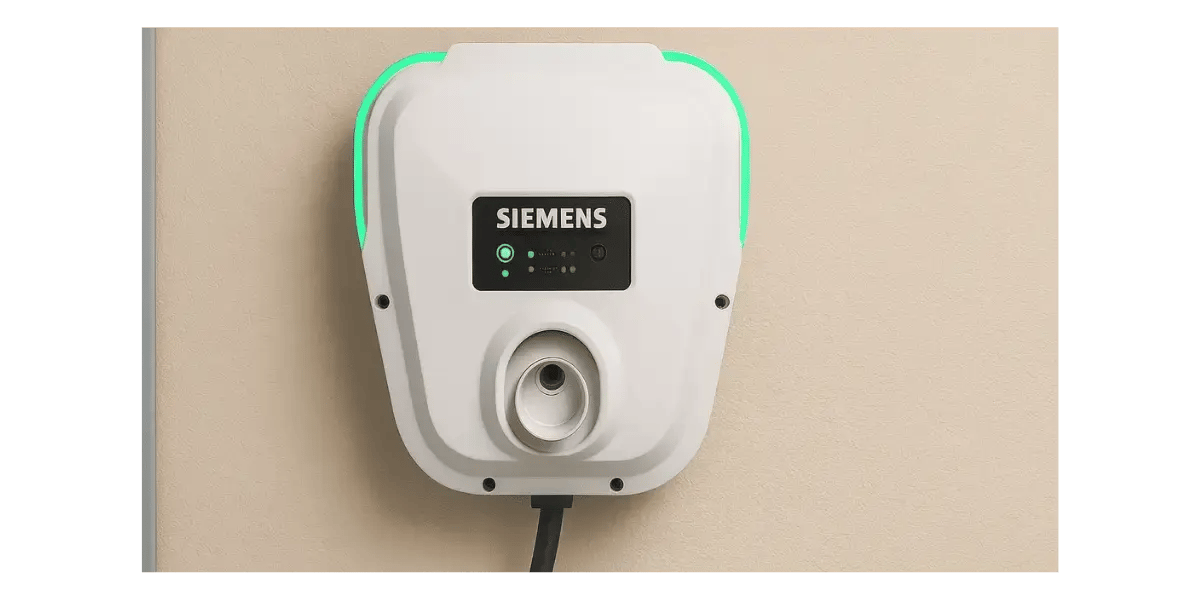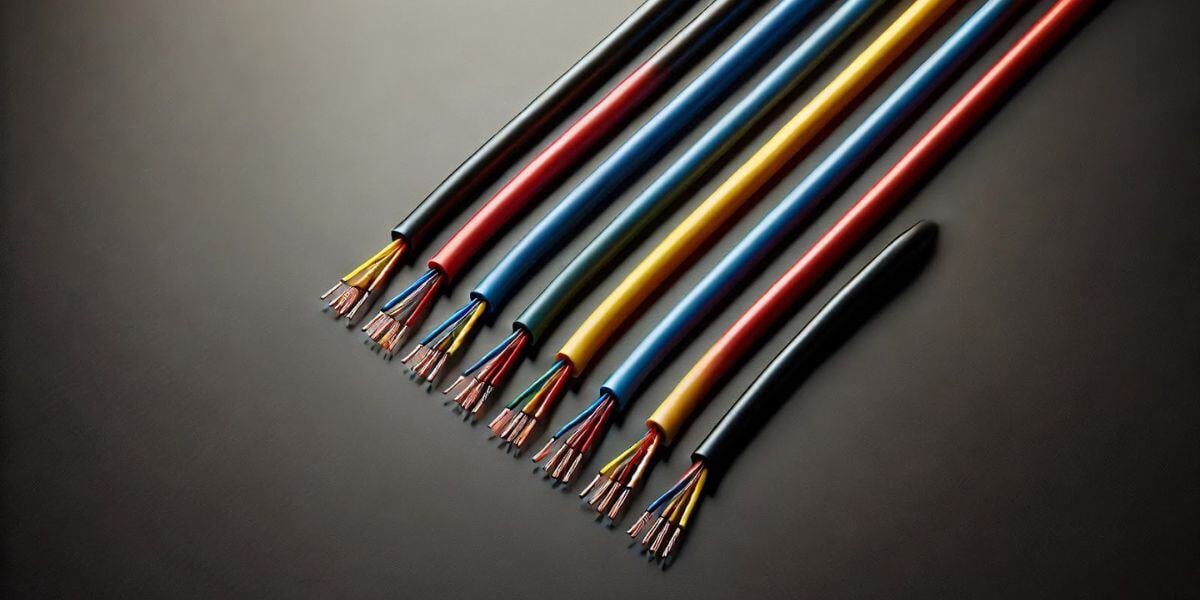How Much Does It Cost to Install an EV Charger at Home in Iowa?
June 24th, 2025
3 min read

You’re pumped about your new EV — and rightfully so. It’s sleek, silent, and smarter than half the things in your house. (Unless it’s a Cybertruck… then it’s definitely the loudest thing in the driveway.)
But now that the car is here, reality kicks in: you still need a charger. And if you’re like most homeowners we talk to, you’re probably wondering… “How much is this thing going to cost me?”
We get it. You’re not alone in that question.
At Integra Electrical, we’ve been in the game longer than EV chargers have even existed. We’ve helped hundreds of Iowa homeowners install safe, reliable EV charging setups that match their homes’ needs and budget, without the sticker shock.
In this article, we’ll break down everything you need to know, including:
- The different types of EV chargers (and what's most common in homes)
- The cost of a full EV Charger installation
- What drives the cost up
- What can keep the cost down
- And financing options
Types of EV Chargers: What You Need to Know
There are three types of EV chargers, but only two are relevant for most homeowners:
- Level 1 (120V): Plugs into a regular outlet. It’s slow, about 3–5 miles charge per hour. Good for overnight trickle charging, but not practical for daily drivers.
- Level 2 (240V): The most popular home option. Charges much faster (20–40 miles per hour) and typically requires a dedicated circuit installed by an electrician.
- Level 3 (DC Fast Charging): These are the superchargers at public stations. They are fast, powerful, and not for home use.
For most homes, Level 2 is the go-to. That’s what we’ll focus on for pricing.
How Much Does an EV Charger Installation Cost?
Installing a Level 2 EV charger typically costs between $400 and $4,000.
Most of the homeowners we work with in central Iowa end up spending between $1,200 and $2,500 for a complete installation. Let's dive in to what makes this range so big.
Factors That Increase EV Charger Installation Costs
A few key factors can increase the cost of your EV charger installation:
- Installer-Supplied Charger: If your electrical provider supplies the charger, expect to pay more than if you provide your own.
- Electrical Panel Upgrades: If your home’s panel doesn’t have enough available capacity, it may need to be upgraded to safely handle the charger. A simple way of validating this is to look at the main breaker handle size. If it says 150 or 200 amps, then your panel likely has room to handle the extra demand. If the main breaker handle says 100 or 125 amps, the panel likely DOES NOT have room to grow.
The reason for this is that an EV Charger adds a significant demand to the panel.
EV chargers typically add between 30 and 50 amps to the panel but some models can almost reach 80 amps. Distance from Panel to Charger: The farther your charging location is from your electrical panel, the more wiring and labor are needed. - Complex Installation Conditions: Outdoor installs, trenching, pedestal mounts, or weatherproof enclosures can all add to the cost.
- Permit and Code Requirements: Local permit fees and code compliance inspections can increase the final price, depending on your city or county.
How to Lower the Cost of EV Charger Installation
Looking to stay on the lower end of the price range? Here are a few ways homeowners often save money on their EV charger installation:
- You already own the charger. Providing your own unit helps avoid added equipment costs from your installer.
- Your panel has room to grow. If your electrical panel has enough available capacity, you can avoid the expense of an upgrade.
- Your installation location is nearby. Shorter distances from your panel to the charger mean less wiring, less labor, and less cost.
- It’s a straightforward garage install. Indoor wall-mounted chargers (especially in garages) are faster and simpler to install than outdoor or detached setups.
- You qualify for rebates or incentives. Many utility companies and local programs offer rebates or tax credits that help offset installation costs.
- MidAmerican Energy: Provides time-of-use rates that make home charging significantly cheaper overnight, saving you on energy costs even if not a direct rebate
- East-Central Iowa REC (ECI REC): Offers a rebate covering 50% of installation costs (up to $500) for their members installing Level 2 chargers.
- Federal Tax Credit: You may be eligible for a 30% tax credit up to $1,000 for installing EV charging equipment at your home.
- Your area has simple permitting. Streamlined permitting processes with lower fees can reduce labor time and administrative costs. In general, cities like Des Moines or Ankeny tend to have higher permit fees, while rural areas like Milo or Winterset often see lower costs and simpler processes.
Financing Options for Home EV Charger Installations
Many electrical providers, including Integra Electrical, offer financing options or payment plans to help make your EV charger installation more manageable.
Whether you're looking to break up the cost over a few months or need a longer-term solution, it's worth asking about flexible payment options during your consultation. Some homeowners even combine financing with rebates or tax credits to lower their monthly payments.
If upfront cost is holding you back, financing is a way to move forward without delay.
EV Charger Cost Summary & Next Steps
Installing a home EV charger doesn’t have to be complicated or costly. Most homeowners in Central Iowa fall somewhere between $1,200 and $2,500, depending on their setup.
If your home already has the right panel capacity and your charger location is easy to access, you could be looking at a simple, affordable install. And if you're unsure about any of the details, that's what your electrician is there for.
Whether you're ready to install or just want a clear idea of what to expect, we’re here to help you move forward with confidence.
Schedule Service today and get one step closer to convenient, reliable charging at home.
Ben Carpenter is the founder and President of Integra Electrical, a Class A Master Electrician, and licensed contractor with over 30 years of hands-on experience. Since 1993, he’s been dedicated to helping homeowners across Iowa with reliable, safety-focused electrical repairs—making homes safer, one job at a time.
Topics:



.webp?width=1200&height=600&name=FI-EVCharger%20(1).webp)




